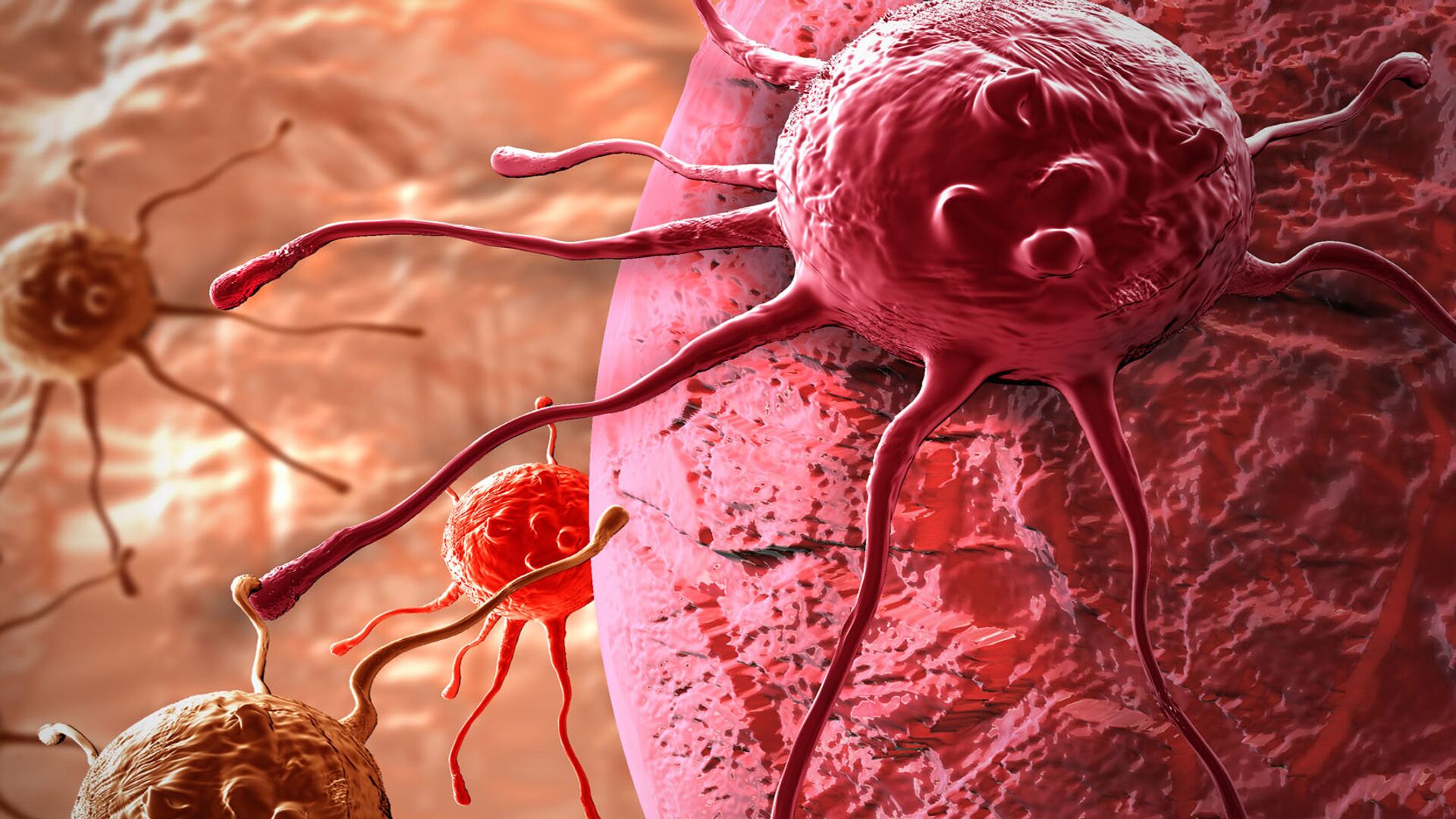https://sputnikglobe.com/20220926/indias-first-oncology-image-bank-chavi-launched-to-boost-cancer-research-1101233477.html
India's First Oncology Image Bank 'CHAVI' Launched to Boost Cancer Research
India's First Oncology Image Bank 'CHAVI' Launched to Boost Cancer Research
Sputnik International
Scientists shared that since oncology is largely based on imaging, not only for diagnosis but also for therapy and post-therapy follow-up, CHAVI centers across... 26.09.2022, Sputnik International
2022-09-26T13:17+0000
2022-09-26T13:17+0000
2022-09-26T13:17+0000
india
cancer
oncology
research
research
scientific research
scientists
https://cdn1.img.sputnikglobe.com/img/105932/19/1059321930_566:0:2278:963_1920x0_80_0_0_256fbbb8d01701da4a6a0818ad38dac8.jpg
Indian scientists from two premiere institutes - Tata Medical Center in Kolkata city and the Indian Institute of Technology (IIT) in Kharagpur, West Bengal teamed up to design and launch India’s first fully annotated, relational, de-identified cancer radiology image biobank.Dubbed CHAVI (Comprehensive Archive of Imaging), the cancer image bank has been developed by the National Digital Library of India (NDLI). It will give free access to a vast database of de-identified patient images and essential medical and clinical information to scientists, researchers, academicians and industry experts from across the world.Dr. P. Arun, director of Tata Medical Center, Kolkata, said in a statement on Monday that "CHAVI gives us the platform to enhance AI-Radiomic research using freely available annotated digital oncological imaging."He said data from digital imaging is critical to patient care, and with today’s technology, it also forms the substrate for future research to improve patient outcomes. "It also allows evaluation of the efficacy of current treatment protocols," Dr. Arun added.
Sputnik International
feedback@sputniknews.com
+74956456601
MIA „Rossiya Segodnya“
2022
Sangeeta Yadav
https://cdn1.img.sputnikglobe.com/img/07e4/08/1b/1080292803_0:121:960:1081_100x100_80_0_0_7490b319dab9611e309056b177265184.jpg
Sangeeta Yadav
https://cdn1.img.sputnikglobe.com/img/07e4/08/1b/1080292803_0:121:960:1081_100x100_80_0_0_7490b319dab9611e309056b177265184.jpg
News
en_EN
Sputnik International
feedback@sputniknews.com
+74956456601
MIA „Rossiya Segodnya“
Sputnik International
feedback@sputniknews.com
+74956456601
MIA „Rossiya Segodnya“
Sangeeta Yadav
https://cdn1.img.sputnikglobe.com/img/07e4/08/1b/1080292803_0:121:960:1081_100x100_80_0_0_7490b319dab9611e309056b177265184.jpg
india, cancer, oncology, research, research, scientific research, scientists
india, cancer, oncology, research, research, scientific research, scientists
India's First Oncology Image Bank 'CHAVI' Launched to Boost Cancer Research
Scientists shared that since oncology is largely based on imaging, not only for diagnosis but also for therapy and post-therapy follow-up, CHAVI centers across the world can provide images for free. It can enhance radiomic research and improve collaborative research work to help deliver better ways to provide cancer care and control the disease.
Indian scientists from two premiere institutes - Tata Medical Center in Kolkata city and the Indian Institute of Technology (IIT) in Kharagpur, West Bengal teamed up to design and launch India’s first fully annotated, relational, de-identified cancer radiology image biobank.
Dubbed CHAVI (Comprehensive Archive of Imaging), the cancer image bank has been developed by the National Digital Library of India (NDLI). It will give free access to a vast database of de-identified patient images and essential medical and clinical information to scientists, researchers, academicians and industry experts from across the world.
Dr. P. Arun, director of Tata Medical Center, Kolkata, said in a statement on Monday that "CHAVI gives us the platform to enhance AI-Radiomic research using freely available annotated digital oncological imaging."
He said data from digital imaging is critical to patient care, and with today’s technology, it also forms the substrate for future research to improve patient outcomes.
"It also allows evaluation of the efficacy of current treatment protocols," Dr. Arun added.


